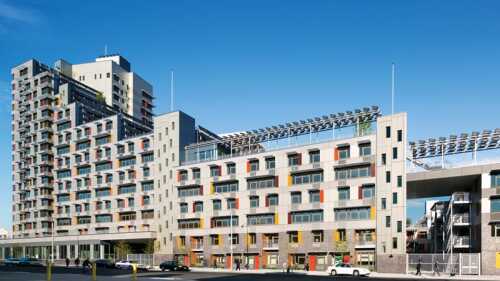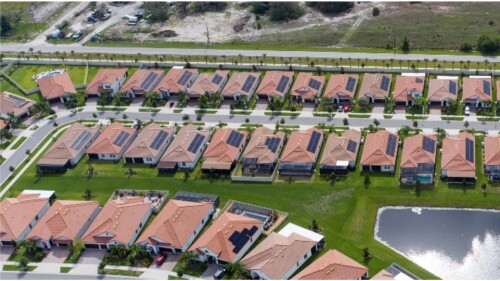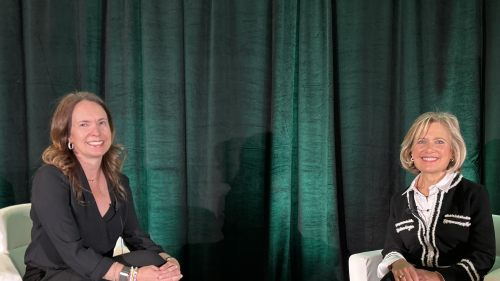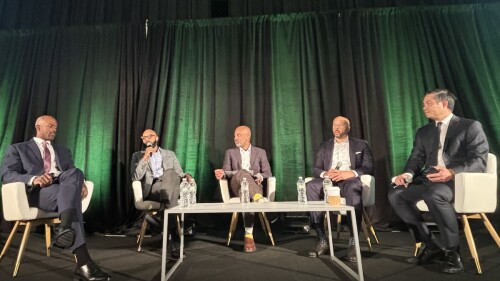| His Highness the Aga Khan |
An unparalleled leader in development, cultural preservation, and philanthropy, largely benefiting poor and marginalized communities in Asia and Africa, has been named the 2011 laureate of the ULI J.C. Nichols Prize for Visionaries in Urban Development. The honor for His Highness the Aga Khan, imam of the Shia Imami Ismaili Muslims and leader of the nondenominational Aga Khan Development Network (AKDN), was announced in late October at ULI’s Fall Meeting and Urban Land Expo in Los Angeles.
The Nichols Prize recognizes an individual, or a person representing an institution, whose career demonstrates a commitment to the highest standards of responsible development. The $100,000 prize honors the legacy of legendary Kansas City, Missouri, developer Jesse Clyde Nichols (1880–1950), a founding ULI member who is widely regarded as one of America’s most influential entrepreneurs in land use during the first half of the 20th century.
“The ULI J.C. Nichols Prize recognizes distinguished contributions to community building. Such contributions can, and do, come from many sources and cultures,” said James DeFrancia, chair of the 2011 Nichols Prize jury and principal of Lowe Enterprises in Aspen, Colorado.
“Through the Aga Khan Development Network, progress and improvements to communities have been undertaken in over 30 countries,” he said. “The Aga Khan has further been an advocate of standards of excellence through his Award for Architecture. His Planning and Building Services agency has also improved design, construction, sanitation, and environmental sustainability. The efforts of the Aga Khan have strengthened both communities and society at large.”
Luis Monreal, general manager of the Aga Khan Trust for Culture, accepted the prize on behalf of the Aga Khan. “Fully a third of World Heritage sites are in the Muslim world, but they are inhabited by some of the poorest people,” Monreal said. “Traditional approaches to urban regeneration—which are often designed to create museums of these neighborhoods—fail to address social and economic dimensions. They become unproductive burdens on poor municipalities. The central objective of our work, therefore, is to leverage culture in pursuit of poverty alleviation. We do this by bringing a critical mass of programs to bear—the creation of parks and gardens, heritage conservation, water and sanitation, microfinance, open space and infrastructure improvements, and education and health initiatives. We have found that poor people can benefit from these efforts and can become custodians of their heritage.”
Selection of the Aga Khan as the 2011 laureate is particularly timely this year as ULI celebrates its 75th anniversary. “We are recognizing the anniversary as much by looking ahead as by celebrating our past, and this involves expanding ULI’s reach to new audiences around the globe,” said ULI CEO Patrick Phillips. “The knowledge we gain from the outstanding example set by the Aga Khan’s work will greatly help ULI broaden its approach to community building,”
| Creation of the 74-acre (30-ha) Al-Azhar Park on Al-Darassa by the Aga Khan Trust for Culture came when the Aga Khan decided to donate a park to the citizens of Cairo in 1984 out of the Islamic belief that all people are trustees of God’s creation and therefore must seek to leave the world a better place than they found it. |
One project undertaken by the Aga Khan Trust for Culture, the restoration of a 900-year-old Altit Fort in Hunza, Pakistan, illustrates the scope of the Aga Khan’s work. Before restoring the fort, which is a cultural monument and tourist attraction, the project focused first on improving living conditions in the local village. According to the AKDN, residents had been abandoning traditional houses in the village and building new houses on valuable arable land. City improvements that include a water filtration system helped draw people back to the traditional settlement. Earlier this year, the project received an Award of Distinction at the 2011 UNESCO Asian-Pacific Awards for Cultural Heritage Conservation.
That is but one example of the great range of endeavors undertaken by the Aga Khan and the AKDN. He and his network have created universities and medical centers in areas of the world that lacked such vital institutions. Economic development, education, cultural preservation, promotion of tourism, and humanitarian assistance all are part of the organization’s work.
The ULI J.C. Nichols Prize jury also noted the prestigious Aga Khan Award for Architecture, given every three years to projects that set new standards of excellence in architecture, planning practices, historic preservation, and landscape architecture. The selection process emphasizes architecture that not only provides for people’s physical, social, and economic needs, but also stimulates and responds to their cultural expectations.
His Highness the Aga Khan is the 49th imam, or spiritual leader, of the Shia Imami Ismaili Muslims, who live mainly in Central and South Asia, Africa, and the Middle East, but also in Europe, North America, and Australia. Born in 1936 in Geneva, Switzerland, he spent his early childhood in Nairobi, Kenya, and graduated from Harvard University in 1959. For more information about the Aga Khan and his work, visit
www.akdn.org .





